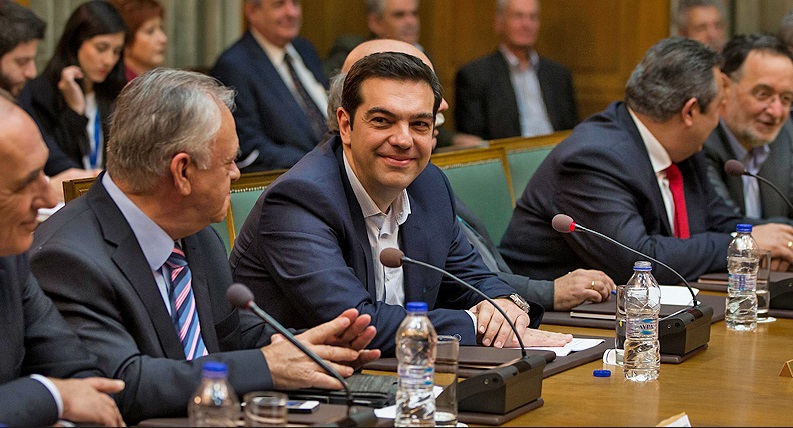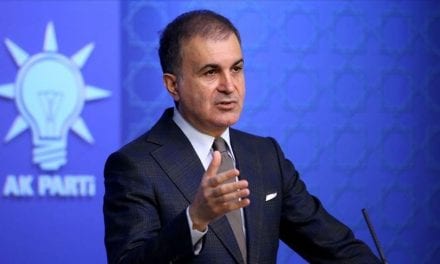Greece’s Prime Minister Alexis Tsipras vowed Friday during his new government’s first cabinet meeting that he wants to quickly implement measure needed for a third bailout, but would still push for ways to soften the blow of reforms on remaining open issues, including seeking debt reduction.
Since his party secured a comfortable victory in weekend elections, Mr. Tsipras has charted a course of stability, renewing his coalition and sticking to a familiar cabinet lineup in a signal he would stick to a more conciliatory approach to his country’s creditors.
“We have the obligation of a prompt implementation,” Mr. Tsipras said. “We are fully aware of the difficulties that lie ahead of us. But we have the way to find the antidote, where side effects will be created,” by continuing negotiations on remaining issues.
Mr. Tsipras, first elected in January, abruptly reversed course on opposition to further austerity and agreed to a tough third bailout deal for up to €86 billion, a move seen as necessary to avoid a catastrophic exit from the eurozone. He called snap elections in August in a successful bid to jettison doubters in his party, securing a comfortable win and a mandate to push through the deal.
The Greek premier said his government’s top priorities will be a fast and successful conclusion of the first review of the country’s bailout, to open the road for debt restructuring talks, and the recapitalization of Greek banks. Greeks have been living with limits on bank withdrawals since June 29.
“A debt reduction will reduce investors’ risk, while the bank recapitalization can restore the liquidity of the country’s economy,” Mr. Tsipras said.
The bailout agreement foresees up to €25 billion for the recapitalization, but the exact amount will be determined by a review by the European Central Bank.
On debt, European officials have acknowledged that the country’s debt load is too high, but they have excluded any nominal write-offs. Instead they will likely look at ways of easing debt servicing, such as an extension of maturities of eurozone loans and further grace periods for repayments.
He also promised that his government is ready to negotiate with the country’s creditors on labor laws and pension reforms.
The Greek prime minister repeated his pre-election pledge to tackle tax evasion and corruption and deal with the country’s unemployment, which remains at “unacceptably high levels for a European country.”
Mr. Tsipras expressed optimism that by the end of the government’s four-year-term, the country will be out of its international creditors’ supervision and will have managed to return to growth.
“It is important not to lose an inch of ground gained in negotiations with creditors,” Mr. Tsipras said.
The government’s policy statements are expected to be unveiled in the Greek parliament over the next weekend.
Mr. Tsipras is traveling to New York on Saturday to take part in the United Nations General Assembly. He is also expected to meet with Secretary of State John Kerry and Turkish Prime Minister Ahmet Davutoglu on the sidelines of the assembly for talks expected to focus on the refugee crisis.
Late Thursday, the president spoke over the phone with the Greek premier. Mr. Obama expressed his solidarity for Greece and the EU in their “response to an extraordinary surge in refugees and migrants” and his hope for Greece’s economic stabilization and quick return to growth, according to Greek officials.



















